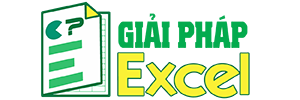You are using an out of date browser. It may not display this or other websites correctly.
You should upgrade or use an alternative browser.
You should upgrade or use an alternative browser.
Cách phát âm thanh mp3 khi ấn Command Button trên userform (1 người xem)
- Thread starter mylanlinh
- Ngày gửi
-
- Thẻ
- lập trình excel mp3 vba
Người dùng đang xem chủ đề này
Đang trực tuyến: 1 (Thành viên: 0, Khách: 1)
Bluestar092011
Thành viên hoạt động



- Tham gia
- 17/8/15
- Bài viết
- 129
- Được thích
- 148
- Giới tính
- Nam
Thêm code sau vào Module.Kính nhờ quý anh/chị/ em giúp đỡ Cách phát âm thanh khi ấn Command Button trên userform
Ví dụ: Khi ấn vào Command Button nào thì nó sẽ phát ra âm thanh đó.
(File đính kèm đây ạ)
Xin chân thành cảm ơn!
Mã:
Option Explicit
Private Declare PtrSafe Function mciSendString Lib "winmm.dll" Alias _
"mciSendStringA" (ByVal lpstrCommand As String, ByVal _
lpstrReturnString As Any, ByVal uReturnLength As Long, ByVal _
hwndCallback As Long) As Long
Private Declare Function GetShortPathName Lib "kernel32" Alias "GetShortPathNameA" _
(ByVal lpszLongPath As String, ByVal lpszShortPath As String, ByVal lBuffer As Long) As Long
Private sMusicFile As String
Dim Play
Public Sub PlaySound(ByVal File$)
sMusicFile = GetShortPath(File)
Play = mciSendString("play " & sMusicFile, 0&, 0, 0)
If Play <> 0 Then 'this triggers if can't play the file
'Play = mciSendString("'play " & sMusicFile & "'", 0&, 0, 0) 'i tried this aproach, but doesn't seem to work
End If
End Sub
Public Sub StopSound(Optional ByVal FullFile$)
Play = mciSendString("close " & sMusicFile, 0&, 0, 0)
End Sub
Public Function GetShortPath(ByVal strFileName As String) As String
Dim lngRes As Long, strPath As String
strPath = String$(165, 0)
lngRes = GetShortPathName(strFileName, strPath, 164)
GetShortPath = Left$(strPath, lngRes)
End Function
Mã:
Call PlaySound(ThisWorkbook.Path & "\MP3\Hello.mp3")
Upvote
0
Mình thêm vào userform và báo lỗi. Có thể chỉnh dùm mình trên user form đính kèm được ko ạ?Thêm code sau vào Module.
Sau đó dùng lệnh sau để đọc file MP3.Mã:Option Explicit Private Declare PtrSafe Function mciSendString Lib "winmm.dll" Alias _ "mciSendStringA" (ByVal lpstrCommand As String, ByVal _ lpstrReturnString As Any, ByVal uReturnLength As Long, ByVal _ hwndCallback As Long) As Long Private Declare Function GetShortPathName Lib "kernel32" Alias "GetShortPathNameA" _ (ByVal lpszLongPath As String, ByVal lpszShortPath As String, ByVal lBuffer As Long) As Long Private sMusicFile As String Dim Play Public Sub PlaySound(ByVal File$) sMusicFile = GetShortPath(File) Play = mciSendString("play " & sMusicFile, 0&, 0, 0) If Play <> 0 Then 'this triggers if can't play the file 'Play = mciSendString("'play " & sMusicFile & "'", 0&, 0, 0) 'i tried this aproach, but doesn't seem to work End If End Sub Public Sub StopSound(Optional ByVal FullFile$) Play = mciSendString("close " & sMusicFile, 0&, 0, 0) End Sub Public Function GetShortPath(ByVal strFileName As String) As String Dim lngRes As Long, strPath As String strPath = String$(165, 0) lngRes = GetShortPathName(strFileName, strPath, 164) GetShortPath = Left$(strPath, lngRes) End Function
Mã:Call PlaySound(ThisWorkbook.Path & "\MP3\Hello.mp3")
Upvote
0
Bluestar092011
Thành viên hoạt động



- Tham gia
- 17/8/15
- Bài viết
- 129
- Được thích
- 148
- Giới tính
- Nam
Xem fileMình thêm vào userform và báo lỗi. Có thể chỉnh dùm mình trên user form đính kèm được ko ạ?
File đính kèm
Upvote
0
Khi chọn mục 1 thì phát ra âm thanh của mục 1 (có 3 file), chọn mục 2 thì phát ra âm thanh của mục 2 (cũng có 3 file # âm thanh mục 1) thì sao ạ?Xem file
Upvote
0
Bluestar092011
Thành viên hoạt động



- Tham gia
- 17/8/15
- Bài viết
- 129
- Được thích
- 148
- Giới tính
- Nam
Nhưng trong thư mục MP3 có cái tệp nào liên quan đến mục 1, mục 2 đâu mà phát.Khi chọn mục 1 thì phát ra âm thanh của mục 1 (có 3 file), chọn mục 2 thì phát ra âm thanh của mục 2 (cũng có 3 file # âm thanh mục 1) thì sao ạ?
Upvote
0
Mình mới thêm mấy file âm thanh để phát cho 4 mục đầu đây ạ, mỗi mục có 3 command button (chọn vào mỗi STT 1, 2, 3, ....thì: command button 1- phát 1a.mp3, command button 2- phát 1b.mp3, command button 3 - phát 1c.mp3, ......)Nhưng trong thư mục MP3 có cái tệp nào liên quan đến mục 1, mục 2 đâu mà phát.
File đính kèm
Lần chỉnh sửa cuối:
Upvote
0
HeSanbi
Nam Nhân✨Hiếu Lễ Nghĩa Trí Tín✨
- Tham gia
- 24/2/13
- Bài viết
- 2,828
- Được thích
- 4,604
- Giới tính
- Nam
Nếu đọc tiếng Anh bằng giọng đọc Window thì hàm đầy đủ như sau:
Hàm đọc và đợi đọc xong:
Call SpeakerXL_Busy(<Chuỗi để đọc>, <Tốc độ đọc 0.5 đến 4.0>, <Âm lượng 1 đến 100>, <Giọng đọc 0 -> ... >)
Hàm đọc nhưng không đợi:
Call SpeakerXL(<Chuỗi để đọc>, <Tốc độ đọc 0.5 đến 4.0>, <Âm lượng 1 đến 100>, <Giọng đọc 0 -> ... >)
Tiếng Anh có nhiều giọng đọc và phải tải về các giọng đọc nam nữ Anh, Mỹ, Úc, ... không thì đọc với giọng mặc định
----------------------------
Hàm đọc và đợi đọc xong:
Call SpeakerXL_Busy(<Chuỗi để đọc>, <Tốc độ đọc 0.5 đến 4.0>, <Âm lượng 1 đến 100>, <Giọng đọc 0 -> ... >)
Hàm đọc nhưng không đợi:
Call SpeakerXL(<Chuỗi để đọc>, <Tốc độ đọc 0.5 đến 4.0>, <Âm lượng 1 đến 100>, <Giọng đọc 0 -> ... >)
Tiếng Anh có nhiều giọng đọc và phải tải về các giọng đọc nam nữ Anh, Mỹ, Úc, ... không thì đọc với giọng mặc định
----------------------------
JavaScript:
' Speaker
Option Explicit
#If VBA7 Then
Private Declare PtrSafe Function mciSendString Lib "winmm.dll" Alias "mciSendStringA" (ByVal lpstrCommand As String, ByVal lpstrReturnString As String, ByVal uReturnLength As Long, ByVal hwndCallback As Long) As Long
Private Declare PtrSafe Function GetShortPathName Lib "KERNEL32" Alias "GetShortPathNameW" (ByVal lpszLongPath As String, ByVal lpszShortPath As String, ByVal cchBuffer As Long) As Long
#Else
Private Declare Function mciSendString Lib "winmm.dll" Alias "mciSendStringA" (ByVal lpstrCommand As String, ByVal lpstrReturnString As String, ByVal uReturnLength As Long, ByVal hwndCallback As Long) As Long
Private Declare Function GetShortPathName Lib "kernel32" Alias "GetShortPathNameW" (ByVal lpszLongPath As String, ByVal lpszShortPath As String, ByVal cchBuffer As Long) As Long
#End If
Private Sub SpeakerXL_Busy_Test()
Call SpeakerXL_Busy("My NickName is Sanbi", 1.5)
End Sub
Sub SpeakerXL_Busy(Optional Text As String, _
Optional Speed As Double = 1, _
Optional Volume As Integer = 100, _
Optional Speaker As Integer = 0)
DoEvents
Dim oVoice As Object
Set oVoice = VBA.CreateObject("SAPI.SpVoice")
Set oVoice.Voice = oVoice.GetVoices.Item(Speaker)
oVoice.Rate = Speed
oVoice.Volume = Volume
oVoice.Speak Text
Set oVoice = Nothing
End Sub
Private Sub SpeakerXL_test()
Call SpeakerXL("My NickName is Sanbi", 1.5, 100, 0, 0)
End Sub
Sub SpeakerXL(Optional Text As String, _
Optional Speed As Double = 1, _
Optional Volume As Integer = 100, _
Optional Speaker As Integer = 0)
On Error Resume Next
Call mciSendString("close all", "", 0, 0)
Const SAFT48kHz16BitStereo = 39
Const SSFMCreateForWrite = 3
Dim oFileStream As Object
Dim oVoice As Object
Dim xpath As String
xpath = VBA.Environ$("temp") & "\Sample.wav"
GoSub Save
xpath = GetShortPath(xpath)
Set oFileStream = VBA.CreateObject("SAPI.SpFileStream")
oFileStream.Format.Type = SAFT48kHz16BitStereo
oFileStream.Open xpath, SSFMCreateForWrite, True
Set oVoice = VBA.CreateObject("SAPI.SpVoice")
Set oVoice.Voice = oVoice.GetVoices.Item(Speaker)
Set oVoice.AudioOutputStream = oFileStream
oVoice.Volume = Volume
oVoice.Rate = Speed
oVoice.Speak Text, SpeechLib.SpeechVoiceSpeakFlags.SVSFDefault
oFileStream.Close
Set oFileStream = Nothing
Set oVoice = Nothing
Call mciSendString("open " & xpath & " alias fmusic", "", 0, 0)
Call mciSendString("play fmusic", "", 0, 0)
Exit Sub
Save:
With VBA.CreateObject("ADODB.Stream")
.Type = 2 'Stream type
.Charset = "utf-8" 'or utf-16 etc
.Open
.WriteText ""
.SaveToFile xpath, 2 'Save binary data To disk
End With
VBA.err.Clear
Return
End Sub
Private Function GetShortPath(ByVal Path As String) As String
Dim ret&, Buff As String * 512
ret = GetShortPathName(VBA.StrConv(Path, 64), Buff, 512)
GetShortPath = VBA.Left(StrConv(Buff, 128), ret)
End Function
Upvote
0
Bài viết mới nhất
Lỗi hàm VBA phải add-in sau mỗi lần mở file
(4 người xem)
- Trả lời
- 5
- Đọc
- 88
- Trả lời
- 4
- Đọc
- 62
- Đã giải quyết
- Trả lời
- 91
- Đọc
- 27K
- Trả lời
- 14
- Đọc
- 262
- Question
- Trả lời
- 580
- Đọc
- 82K
- Trả lời
- 24
- Đọc
- 492
- Trả lời
- 1
- Đọc
- 128
- Trả lời
- 10
- Đọc
- 291
- Trả lời
- 2
- Đọc
- 104
- Trả lời
- 7
- Đọc
- 127
- Trả lời
- 2
- Đọc
- 128
- Trả lời
- 14
- Đọc
- 720
- Trả lời
- 14
- Đọc
- 470
- Trả lời
- 34
- Đọc
- 727
- Trả lời
- 1
- Đọc
- 109
- Trả lời
- 4
- Đọc
- 205
Thành viên có số lượng bài viết cao nhất tháng
- Maika8008 32
- thanthanhan 19
- dungpham01 18
- eagle12 16
- ongke0711 16
- nguyenanhtruong2409 14
- Phan Thế Hiệp 12
- HUONGHCKT 12
- vic_it 11
- ptm0412 11
- nhhnam 10
- pycckuu410 10
- Vũ Hải Sơn 9
- HeSanbi 8
- bsbnhh 7
- Gà Con yêu VBA 7
- Hana2610 6
- dieppk.nb92 6
- duongnhuxuyen 6
- Mr.hieudoanxd 5
Thành viên có điểm tương tác cao nhất tháng
- Phan Thế Hiệp 63
- Maika8008 26
- ongke0711 17
- thanthanhan 16
- ptm0412 12
- HeSanbi 10
- HUONGHCKT 9
- dungpham01 9
- Cúc Hr 8
- eagle12 8
- dieppk.nb92 6
- befaint 5
- Mr.hieudoanxd 5
- pycckuu410 5
- SA_DQ 4
- nguyenanhtruong2409 4
- Phuocam 4
- tieutuvodanh192 2
- Hana2610 2
- nhhnam 2

